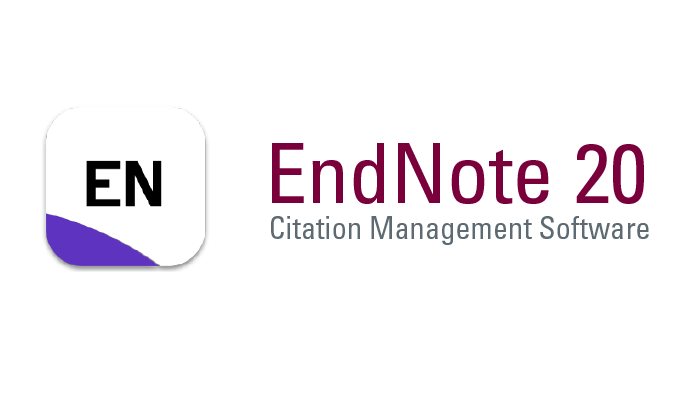PENGEMBANGAN LITERASI KATABA UNTUK MENUNJANG PENDIDIKAN BERKUALITAS PERSPEKTIF QS. AL-‘ALAQ AYAT 1-5
DOI:
https://doi.org/10.47887/amd.v2i2.28Keywords:
Al-'Alaq, Education, KATABA, LiteracyAbstract
The Qur’an has a comprehensive view of the conception of education. Among the core of education is literacy. Student’s literacy skills are able to lead the nation’s generation to be literate and discover their potential. PISA research results in 2018 prove that Indonesia is ranked more than 10 and below in several assessment areas, such as reading, mathematics and science. The PISA 2018 data shows that the level of literacy in Indonesia is still low. Apart from the responsibility of the Ministry of Education and Culture (Kemdikbud) to develop educational policies, students also have a role as booster of the quality of education. Seeing the conception of literacy education from the perspective of the Qur’an, the KATABA Ma’had Al-Jami’ah became the object of research. The existence of this community acts as a support for the literacy atmosphere in the Ma’had environment which contributes to developing the world of writing and research. Through the qualitative method used in this study, the authors found that KATABA is a manifestation of the practice of the concept of literacy in Al-‘Alaq verses 1-5. The existence of literacy community among students contributes to the academic development of students. An increasing achievement index is one indicator of the success of the community in increasing the level of education in higher education.
References
Adib, M. A. (2019). Nilai-Nilai Pendidikan Islam dalam Surat Al Alaq Ayat 1-5 Menurut Tafsir Al Misbah dan Penerapannya dalam Pembelajaran. Skripsi. UIN Maulana Malik Ibrahim.
Agustinova, D. E. (2015). Memahami Metode Penelitian Kualitatif: Teori dan Praktik. Yogyakarta: Calpulis.
Ahmad, I. (2018). Proses Pembelajaran Digital dalam Era Revolusi Industri 4.0. https://www.academia.edu/37638057/Proses_Pembelajaran_Digital_dalam_Era_Revolusi_Industri_4_0_Direktur_Jenderal_Pembelajaran_dan_Kemahasiswaan
Arifah, A. N., Mansur, R., & Rodafi, D. (2020). Konsep Belajar Dalam Al-Qur’an (Telaah Tafsir Al-Misbah Surat Al-’Alaq Ayat 1-5). Vicratina: Jurnal Pendidikan Islam, 5(5), 115–125.
Badan Penilaian Pendidikan Balitbang. (2019). PISA 2018: Akses Meluas, Saatnya Tingkatkan Kualitas. https://simpandata.kemdikbud.go.id/index.php/s/BTKR4cP76DK3pqM#pdfviewer
Flewitt, R., Messer, D., & Kucirkova, N. (2014). New directions for early literacy in a digital age: The iPad. Journal of Early Childhood Literacy, 15(3), 1–22.
Ibtyah, N. R. (2019). Urgensi Literasi Perspektif Q.S. Al-"Alaq Ayat 1-5. Skripsi. UIN Sunan Ampel.
IDN Research Institute. (2019). Indonesia Millennial Report 2019. https://cdn.idntimes.com/content-documents/indonesia-millennial-report-2019-by-idn-times.pdf
Karinov. (2019). Revolusi Industri 5.0 ala Jepang: Human-Centered Society. https://karinov.co.id/revolusi-industri-5-jepang/
Kementerian Agama. (n.d.). Qur’an Kemenag: Terjemah Surat Al-’Alaq. https://quran.kemenag.go.id/sura/96
Majid, Z. A. (2019). Refleksi Al-Qur’an Dalam Literasi Global (Studi Tafsir Maudhu’i Dalam Kajian Literasi). Al Marhalah: Jurnal Pendidikan Islam, 3(2), 81–90.
Mustolehudin. (2011). Tradisi Baca Tulis Dalam Islam Kajian terhadap Teksi Al-Qur’an Surah Al ‘Alaq Ayat 1-5. Analisa, 18(1), 145–154.
OECD. (2019). PISA 2018 Results (Volume I): What Students Know and Can Do. Paris: OECD Publishing.
Qardhawi, Y. (1998). Al-Qur’an Berbicara tentang Akal dan Ilmu Pengetahuan. Jakarta: Gema Insani.
Raco, J. R. (2010). Metode Penelitian Kualitatif: Jenis, Karakteristik dan Keunggulannya. Jakarta: Grasindo.
UNESCO. (2003). The Prague Declaration “Towards An Information Literate Society.”
Wahidin, U., Islam, Y. M., & Fadillah, P. (2017). Literasi Keberagamaan Anak Keluarga Marjinal Binaan Komunitas di Kota Bogor. Edukasi Islami: Jurnal Pendidikan Islam, 6(12), 125–135.
Downloads
Published
How to Cite
Issue
Section
License
Copyright (c) 2021 Ali Hamidi, Muhammad Syariful Anam, Firdan Fadlan Sidik

This work is licensed under a Creative Commons Attribution-ShareAlike 4.0 International License.
Authors retain copyright and grant the journal right of first publication and this work is licensed under a Creative Commons Attribution-ShareAlike 4.0 that allows others to share the work with an acknowledgement of the works authorship and initial publication in this journal.
All articles in this journal may be disseminated by listing valid sources and the title of the article should not be omitted. The content of the article is liable to the author.
Authors are able to enter into separate, additional contractual arrangements for the non-exclusive distribution of the journal's published version of the work (e.g., post it to an institutional repository or publish it in a book), with an acknowledgment of its initial publication in this journal.
Authors are permitted and encouraged to post their work online (e.g., in institutional repositories or on their website) prior to and during the submission process, as it can lead to productive exchanges, as well as earlier and greater citation of published work.
In the dissemination of articles by the author must declare the Al-Madaris Jurnal Pendidikan dan Studi Keislaman as the first party to publish the article.














